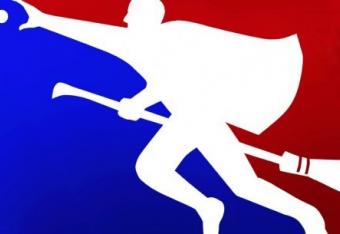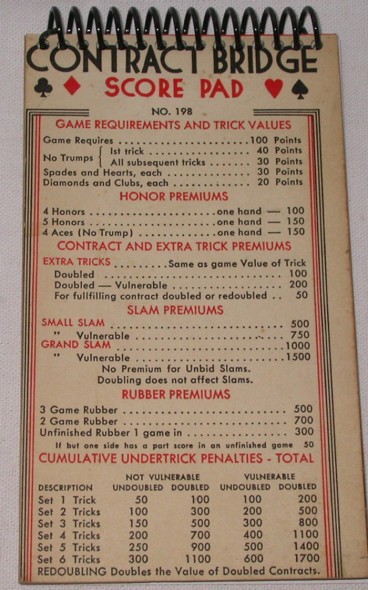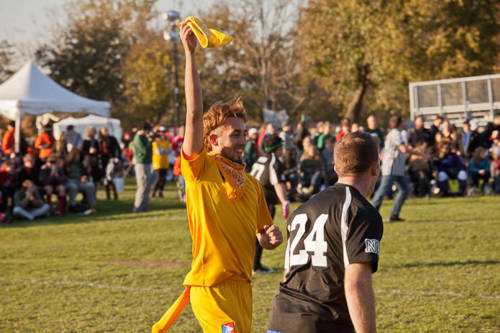Ben: The Quidditch World Cup is This Weekend: Seriously?
What does OTI think of this phenomenon? I was talking on campus the other day and saw three different teams clearly getting ready for some sort of meet/match/competition. They had actual jerseys, what I think was a referee, etc. It kind of blew my mind – I’d seen people doing it before, but always assumed it was just kind of screwing around and an excuse to drink beer.

Lee: I’ve seen competitive quidditch 2 years in a row at NY Comic Con. (2013 Con is Oct 10-14, by the way. Mark your calendars.) I’ve only seen 4 of the Harry Potter movies, and I was mostly angling for good photos (of which I took few), so I’m not the best person to comment on it as a spectator sport. But I will say that these people were definitely not messing around.
Shana: They really do not mess around.There was a huge (like 10 page) article about them in some magazine last year, and it sounded brutal. Which I guess makes sense, seeing as Quidditch is supposed to be rugby with brooms.
Belinkie: But don’t people generally agree that Quidditch is a poorly designed game that make the Golden Snitch far too important? I gotta imagine that real world Quidditch tweaks the rules (for instance, the same doesn’t end the second somebody tackles the Snitch).
Ben: I think that it is generally agreed that Quidditch in the books is a terrible, terrible game from the standpoint of game mechanics. It looks like they’ve tweaked it a bit, at least here: International Quidditch Rulebook
The Snitch is only worth 50 points (so 5 goals), as opposed to the book, (where I think it was worth 150).
I’m kind of interested in the implementation of the Snitch in the real-world game, where you have just some guy running around away from both teams. I can’t really think of another sport or game where you have two teams on equal footing and an actual PERSON acting as part of the “field” essentially. The only thing I can really think of is American Gladiators, where you were competing agains the other contestants, and the Gladiators were essentially “neutral.”
 Belinkie: AMERICAN GLADIATORS IS AWESOME. I want a giant hamster ball.
Belinkie: AMERICAN GLADIATORS IS AWESOME. I want a giant hamster ball.
Pete: The closest example I can think of is professional wrestling as played in video games — where it is actually part of competitive strategy to knock out the ref so you can perform illegal moves on your opponent.
Perich: I’ll chime in that disproportionate scoring systems aren’t inherently ruinous to competitive play. The closest example I can think of is Olympic judo scoring. Wikipedia: Judo Scoring
Briefly: you can either execute a perfect throw (ippon), a good throw (waza-ari), or an okay throw (yuko). Getting an ippon wins the contest instantly. Two waza-ari equal one ippon. No amount of yuko equal a waza-ari; they’re just used as tiebreakers. So if you can pull off a perfect throw, you win instantly, but you can’t spend all your time trying to set up a perfect throw or you’ll get tossed over and over.
Stokes: True – but the problem with the snitch is quite precisely that it reduces what is ostensibly a team sport, like hockey, into a one-on-one competition, like… well, like Judo.
I can’t be the first person to have noticed, by the way, that when confronted with a crisis, Wizarding society uses the coping strategies that Quidditch has taught them. At the end of the day, only one person (Harry, or in his youth Dumbledore) is ever going to “find the snitch,” as it were, so in the meantime everyone else just scampers around like a bunch of idiots, frantically trying to accomplish tasks that have no real baring on the problem at hand. And arguably no other model of competition would even make *sense* to the inhabitants of a fantasy coming-of-age-tale. “Wait, so you mean we all have an equal opportunity to alter the outcome of the game? First of all, that’s not realostic. Second of all, what are you, a communist?”
I don’t know enough about quidditch to know how analogous that is, but the comparison struck me when watching the Olympics this past summer.

Also Stokes: p.s. Another interesting example is contract bridge. In practical terms, you win a match by winning the rubber (roughly, by finding the snitch), no matter how many bonus points the other team picks up. But it is possible — by adopting a dickish sort of scorched earth strategy — to prevent the other team from ever winning the rubber, with 100% certainty. The otherwise useless bonus points effectively prevent this kind of play from taking place. (Also Bridge is traditionally played for money – a nickel per point, or whatever – so losing by a little and losing by a lot are not at ALL the same. This again makes the bonus points more consequential.)
Ben: Interesting article on the game. Some highlights:
“The sport has also started referee certification programs, as well as Snitch Academy courses to train and certify snitches.” ……
“But despite that spirit, many involved in Quidditch talk about a dividing line, separating “sporting enthusiasts” from “Harry Potter-lifestyle enthusiasts.” More simply put, jocks vs. nerds. There is a camp of Quidditch players who would rather phase out some of the more eccentric Potter-flavored rules, to legitimize the sport even further. But Benepe is opposed to this. He suspects that if you do away with the broomsticks and the magic, then you do away with the very ridiculousness of the game that the more marginal participant base wants and expects. That ridiculous quality has allowed the sport to flourish, but it could be its biggest downfall.
“Quidditch is successful because it’s unique and if it becomes too much like other sports, I’m not sure that it would continue to be popular,” Benepe said. “Is the game powerful because it [has] a fringe audience? And when it loses that fringe audience, will it still be cool?”
“It’s sort of a back-and-forth within the Quidditch community,” said Matthew Ziff, a member of the University of Miami’s Quidditch team, this year’s favorite for the gold. “There’s a big separation between those who want the whimsical and those who want the sports.”
The line between Quidditch qua “sport” and Quidditch quad “Harry Potter Lifestyle” is interesting. It’s not quite LARPing, because, as far as I’m aware, people who play Quidditch never pretend to be someone they’re not – they don’t pretend that they’re actually in Gryffindor or that they are actually flying. There’s no element of fictionalization or “role-playing” – the John Smith of the Middlebury Quidditch team is still just John Smith of the Middlebury Quidditch team.
I’m also interested in the idea of having “certified” Snitches because of they dynamic mentioned above. What motivates the Snitch other than the fun of the game? While that system seems to work just fine for as long as the game stays “fringe” or “marginal” and played primarily by people who know each other outside the context of the sport. But it would seem to break down a bit the bigger the game gets – if there’s actual stakes on the line in the game, it might become harder and harder to find Snitches that are (1) up to the level of play as the players themselves, (2) sufficiently motivated and (3) impartial.
The Quidditch players have a motivation to train before the big game and improve their endurance – what if the Snitch gets too tired? What if the game starts to last too long and the Snitch Runner has a date? What if the Snitch wants to GET a date from one team’s seeker? Taking a dive would be absurdly easy and almost impossible to detect.
Let me put it this way – if people ever gamble on Muggle Quidditch, the Snitch is target #1 for the bookies trying to fix the game.

So Miami has a really good Qudditch team, eh? Maybe all that illgotten money that used to go into their football team has moved elsewhere.
I don’t know anything about Qudditch, so I can’t really say anything else about it. I could talk extensively about either American Gladiators or old wrestling video games, but this doesn’t seem like the place for it.
Well this is a pleasent surprise, I play Muggle Quidditch and I was competing at the aforementioned World Cup last weekend. To answer a few questions raised by the article:
The snitch value has been reduced to only 30 points currently, although there is some rumbling to get that total reduced further (probably to 25 points in order to eliminate overtime). It is worth noting that the World Cup Champions (University of Texas) won all of their games outside the range of a snitch snatch, so Seeker play obviously isn’t the most important component of a team yet.
As for snitch quality and impartiality, its definitely a talking point in the community. Currently snitches are either motivated by necessity (smaller tournaments or scrimmages without official snitches) or pride (bigger gathers where snitches mostly compete to see who can make the game last the longest). However there are plans to start paying snitches as soon as the IQA can get work out its budget better. Thus you open up the possibility of having professional snitches (eventually). In that case, you weed out corruption among snitches the same way you do with refs or players, threaten to fire them.
Simple hourly pay for snitches seems like an easy fix if it becomes an issue.
As another quidditch player (and someone who was a field manager for the World Cup), I wanted to weigh in on the snitch issue. At World Cup, there was a snitch coordinator who carefully selected snitches for matches so there would not be a problem with the impartial nature snitches have to have. And if a snitch had to be replaced, this coordinator had to be consulted so as to avoid, say, putting a snitch from the West Coast on a game that was a West Coast team versus a Mid-Atlantic team. There’s also a pride in being a snitch — many of them don’t play other positions. They love what they do, and they ultimately don’t want anyone to catch the snitch.
Also, the thirty point difference doesn’t kill the team spirit, it motivates the chasers to get “out of snitch range” (i.e. 40 points above the other team), and beaters (two on each team) are typically involved in the snitch play.
Yeah, I forgot to mention that beaters play a very big part in on the field snitch play. To that point that a close match changes tenor entirely when a snitch returns.
Which rings me to a question that has been bugging me, did Texas and UCLA were neck and neck when I had to leave for the bus, did Texas pull away after the snitch returned? Because that would make a lot of sense considering UCLA’s beaters were probably keeping their chasers in the game.
And thank you for helping run World Cup, it was exceptionally smooth and that is never, ever easy.
I had an amazing time, so it was my pleasure. As far as I remember, Texas did really start pulling ahead — it wasn’t the same back and forth scoring that was happening for the first ten or fifteen minutes. UCLA was doing some defensive seeking, which is another point I just thought of — seekers don’t just go for it, they fight to buy time for their chasers. The snitch isn’t just about 30 points, it’s about ending the game…and that can mean a lot more, depending on circumstance.
I also want to add, since I’m posting again anyway, that I don’t think anyone has to worry about snitches not being up to the skill level of the seekers…just take a look at some of the live streams (I.e. the soon-to-be famous Lost Boys/Bowling Green match).
Not for awhile anyways, the snitch has too many natural advantages. However if Quidditch goes pro then the athleticism of the seekers is going to pull way ahead of the snitches unless there are equal incentives to become a top level snitch.
I guess I should also mention that I was part of the longest official game ever played, so I have personal experience with super-dominant snitches.
I am reminded of 43-Man Squamish (http://www.madcoversite.com/quiz_olympics.html) and Fizzbin (http://en.memory-alpha.org/wiki/Fizzbin).
There’s also Moopsball (http://en.wikipedia.org/wiki/Moopsball). It seems to have fallen by the wayside over the years, despite a clear and comprehensive set of rules.
And don’t forget Rollerball (http://www.imdb.com/title/tt0073631/)…
Wait, that’s it? Where’s the rest of the Think Tank? I MUST KNOW MORE!
I guess that’s what the 10-page Atlantic article is for then.
Can’t speak to Muggle Quidditch much, but how I imagined Wizard Quidditch working in the books was that the games last so long that the chasers are able to get more than 150 points so that the game isn’t entirely dependent on the snitch. How I saw it, there are basically 3 different, but interrelated games going on in a Quidditch game. There’s the chasers and keepers playing a soccer/basketball like game on broomsticks, there’s the seekers looking for the snitch and in the middle there’s the beaters who are trying to take out/defend the players in those two other games.
Finally, I always thought that the fact that Harry’s games don’t usually last long enough to get out of snitch victory range were supposed to be an indication of how good he was.
Okay, so I know this is only tangentially related, but when I saw the title of the Think Tank, I thought you’d be talking about Quidditch Beer Pong as a muggle’s Quidditch. There are a few different ways of setting up, such as:
http://25.media.tumblr.com/tumblr_mcvmwse0f81rjux0ko1_500.jpg
or:
http://24.media.tumblr.com/tumblr_m9r521DsGr1rvobqao1_500.jpg
And I’ve heard of a few different rules that change around, too.
My first instinct is to declare that a Quidditch-ified beer pong would be for people less enthusiastic about Harry Potter and more into drinking- the equivalent of the people playing actual Quidditch that do it for the sport, not the connection to the world of Harry Potter. Except, no, I’m in a Harry Potter themed wedding next month, and the couple totally hosted a Quidditch Butterbeer Pong party in October. So mayhap my group of friends is the exception that proves the rule? Hm…
Anyhoo, I think the original people that started playing Quidditch were doing it precisely to do a semi-LARP thing, Stokes. I know there was an inra-mural tournament at my undergrad, and there were four “teams”- guess what their names were? Gryffindor, Ravenclaw, Slytherin, and Hufflepuff, of course. I’d say less than half were athletes, but all were nerds and into Harry Potter quite a bit. So they wore capes and stuff to, presumably, look more like wizards. And the series wasn’t even finished being published the first time they did it. They all just wanted to do something Harry Potter themed, and hey, there’s this big group activity embedded in the world of the books we can modify and do together, woo hoo! And I’m not saying this was what every single original Quidditch league looked like, but my guess is that my college’s Quidditch players weren’t the only ones to start it out like that or for those reasons.
As such, I’m not too familiar with the current culture of these Quidditich leagues, but from what I know about nerdery and fandoms, I can see why the jocks v. nerds thing would develop in the first place. The nerds would feel like their fun and (safe) space is being invaded by outsiders that are contaminating something dear to them, etc. I see a lot of parallels to this and general ideas in nerd culture about “posers” and “fake nerds” or whatever. Fandoms can get pretty vicious over who “can” participate within their communities sometimes, and I have no doubts that the Harry Potter enthusiasts would feel affronted if the characteristics of the game that make it more whimsical and resemble the books more are at risk of being sacrificed for playability or sport.
But then you sort of have to ask, well, whose is it? As in whose league? Is it the Harry Potter enthusiasts, or do the jocks have a legitimate claim to it, too? Should there be a split and two leagues? I dunno… I’d have to learn more about that conflict. But that’s what has me the most fascinated, too.
Weirdly, my undergrad school also had a Quidditch team that formed shortly before the series was finished, but I think it was right before the 7th book came out, so it just barely edged it out. When I first heard about it, I thought it was something my classmates had made up.
Which makes me wonder about how these sorts of things spread. Organizing a league takes more planning and work than just watching a meme go viral. Obviously, there had to be at least two teams at one point who decided to play, wrote the rules, adapted game play for the real world, etc.
Exactly! So then from the nerd perspective, it could seem like a bunch of jocks came in and institutionalized (in their own way, as in the jock way) something they loved and cherished, gradually turning it into something that became a mere shadow of the initial thing. From the jock’s, they saw an opportunity to have another sport to take part in, but it was entirely lacking standardization that would make gameplay reasonable and fair, so they wrote rules out and formalized the processes involved.
This actually just gave me a thought- that the whole standardization process is kind of like a corporate buy-out. Hrm…
Also, if yor’re interested you should see the 2011 “Brooms Up! – Quidditch World Cup IV documentary” on youtube http://tinyurl.com/c4ps2ua